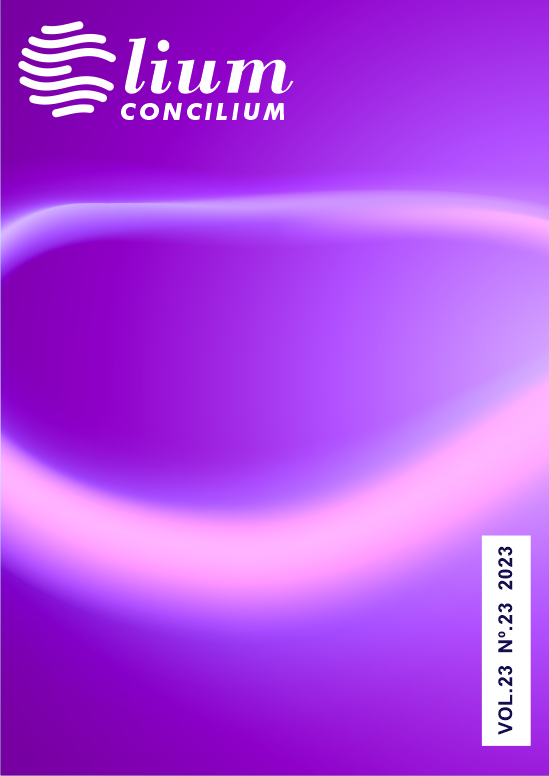Building knowledge on climate change issues: the methodological development of data collection by the RCGI group
Construção de conhecimento em temas de mudanças climáticas: o desenvolvimento metodológico de coleta de dados pelo grupo de advocacy do RCGI
Resumo
The RCGI advocacy group proposed the development of a methodology for collecting qualitative and quantitative data on climate change issues. The methodology consists of preparing and applying a written form, followed by workshops. Combining written forms with workshops was essential to optimize data collection. The methodology was successfully tested by researchers in areas such as Greenhouse Gases, Nature-Based Solutions, Carbon Capture and Utilization, Bioenergy with Carbon Capture and Storage. The study proved the effectiveness of applying the methodology, which successfully obtained quantitative and qualitative data, summarizing the long-term experiences of different researchers. The developed methodology also contributed to aggregate sparse data and favor the obtaining of relevant information for the improvement of solutions and public policies. In the same context, the methodology improved ways of identifying stakeholders, regulatory gaps and difficulties in implementing solutions and public policies. The results indicate that the methodology can be used in mitigation projects and adaptation strategies in a climate change scenario.
Downloads
Referências
BELLAMY, R.; HEALEY, P. ‘Slippery slope’ or ‘uphill struggle’? Broadening out expert scenarios of climate engineering research and development. Environmental Science & Policy. 83, 1-10, 2018.
BELLAMY, R.; et al. Incentivising bioenergy with carbon capture and storage (BECCS) responsibly: Comparing stakeholder policy preferences in the United Kingdom and Sweden. Environmental Science & Policy. 116, 47-55, 2021.
BRASIL. Brazil Frist NDC - Second update [WWW Document]. UNFCCC. 2022. Disponível em: https://www4.unfccc.int/sites/NDCStaging/Pages/Party.aspx?party=BRA. Acesso em: 27 maio 2022.
BRASIL. Paris Agreement Brazil’s Nationally Determined Contribution (NDC) (Updated submission) [WWW Document]. UNFCCC . 2020. Disponível em: https://www4.unfccc.int/sites/NDCStaging/Pages/Party.aspx?party=BRA. Acesso em: 02 mar. 2022.
BRASIL. Intended Nationally Determined Contribution: Towards achieving the objective of the United Nations Framework Convention on Climate Change [WWW Document]. UNFCCC. 2015. Disponível em: http://www4.unfccc.int/Submissions/INDC/Published Documents/Brazil/1/BRAZIL iNDC english FINAL.pdf. Acesso em: 27 maio 2022.
GASSER, T., GUIVARCH, K., TACHIIRI, C., JONES, C., CIAIS, P. Negative emissions physically needed to keep global warming below 2 °C. Nat. Commun. 6, 7958, 2015.
HUMPHREYS, S. Human rights and climate change. New York: Cambridge University Press, 2019. Disponível em: https://www.cambridge.org/core/books/humanrights-and-climate-change/introduction-human-rights-and-climate-change/B89D34682C9C05FF50914706A342A275. Acesso em: 30 mar. 2022.
IEA. 20 Years of Carbon Capture and Storage - Accelerating future deployment. Paris: OECD, 2016. Disponível em: https://www.oecd-ilibrary.org/energy/20-years-of-carbon-capture-and-storage_9789264267800-en. Acesso em: 30 mar. 2022.
INTERMINISTERIAL COMMITTEE ON CLIMATE CHANGE. National Plan on Climate Change. 2008. Disponível em: https://www.mma.gov.br/estruturas/smcq_climaticas/arquivos/plano_nacional_mudanca_clima.pdf. Acesso em: 30 mar. 2022.
IPCC. Intergovernmental Panel on Climate Change. Global Warming of 1.5°C (Summary for Policymakers). Geneva: World Meteorological Organization. 2018.
IPCC. Sixth Assessment Report. Climate Change 2021: The Physical Science Basis. [s.l.] : IPCC (Intergovernmental Panel on Climate Change), 2021. DOI: 10.3724/sp.j.7103161536.
PROLO, Caroline Dihl; GUIMARÃES, Guido Couto Penido; SANTOS, Inaiê Takaes; THEUER, Stephanie La Hoz. Explicando os mercados de carbono na era do Acordo de Paris. Rio de Janeiro: Instituto Clima e Sociedade, 2021.
ROCKSTRÖM, Johan et al. A safe operating space for humanity. Nature, [S. l.], v. 461, n. September, 2009.
SILVEIRA, B.H.M., COSTA, H.K. DE M., SANTOS, E.M. dos. Análise do CBio como passo inicial ao desenvolvimento de BECCS no Brasil, in: ANAIS DO 3ª SIMPÓSIO INTERDISCIPLINAR DE CIÊNCIA AMBIENTAL. IEE-USP, São Paulo, pp. 291–304. 2022.
STEFFEN, Will et al. Planetary boundaries: Guiding human development on a changing planet. Sciencexpress, [S. l.], 2015.



